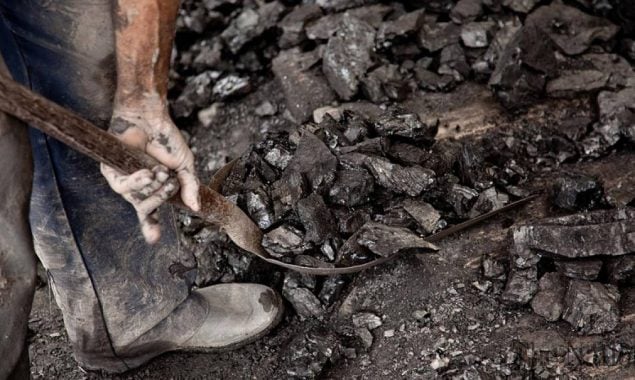
STARA ZAGORA, Bulgaria: Nikolay Dinev, 34, has worked as a coal miner for 12 years but now faces an uncertain future as an EU-wide exit from coal is being discussed at the UN’s COP26 climate conference in Glasgow.
“It will be a disaster… The closure is inevitable,” Dinev told AFP on the outskirts of the Maritsa East complex in central Bulgaria.
Bulgaria — which joined the EU in 2007 but remains one of the bloc’s poorest and also one of the most coal-dependent countries — had long refrained from setting a deadline to end electricity production from coal.
But the government announced last month that it would propose 2038 or 2040 as possible end dates as part of its engagements under the European Green Deal.
Miners trade unions protested in the capital Sofia, calling for the government to save the sector that employs some 30,000 people.
The Maritsa East complex alone employs 12,000 people and provides over a third of Bulgaria’s electricity. Its open-pit coal mines and power plants have been the main source of income in the region for decades.
The mines’ lignite deposits, which were discovered by a French geologist in the mid-19th century and later developed by Soviet engineers, hold another 1.5 billion tonnes of coal, energy ministry data show.
‘Made a mistake?’
The government has proposed setting up a state company to convert mining areas into industrial parks, giving jobs to former workers, but Dinev wishes he could “push back the process (of closing the mines) by 30 years” until his retirement.
Until recently, he still had hopes of becoming a team leader and had even started taking remote courses from the University of Mining and Geology to get promoted.
But now, Dinev sketches out other plans: “I’ll probably go abroad,” he said, like millions of other Bulgarians who have left since the end of Communism in 1989, seeking better opportunities in the West.
“I left the army because I got 500 leva (255 euros, $296) per month and here they offered me double. I tell myself that I might have made a mistake back then,” he said of his move to become a miner like his father who worked in the mines for 31 years and whose childhood home was engulfed by their extension.
Dinev now earns 1,500 leva (750 euros, $889) a month for 12 hours a day repairing equipment — the average salary in the poorest EU country — which is “not bad for the region,” he said.
Dinev managed to save enough to build a house for his parents, wife and 10-year-old daughter, where they grow fruit and vegetables and raise chicken and rabbits.
Uncertainty and anxiety
His dream for a big swimming pool has been put on ice, however. The planned shutdown is expected to have an impact on Bulgaria as a whole.
“It’s not only the workers in the mine but all those who depend on them. My car mechanic is also anxious,” Dinev said.
“The situation is not rosy,” said Zhivko Demerdzhiev, 40, who has worked for close to 20 years as an electrical engineer in the same mining complex.
His wife also works in the mines as an accountant. Every morning they get up before dawn to take the bus at 5:50 am sharp and are the last ones to take their three daughters from school in the evening.
“There’s all sorts of information, rumours… All I want is to have a clear idea what is going to happen and if I’ll be able to work afterwards,” he said.
Read More News On
Catch all the International News, Breaking News Event and Latest News Updates on The BOL News
Download The BOL News App to get the Daily News Update & Follow us on Google News.




